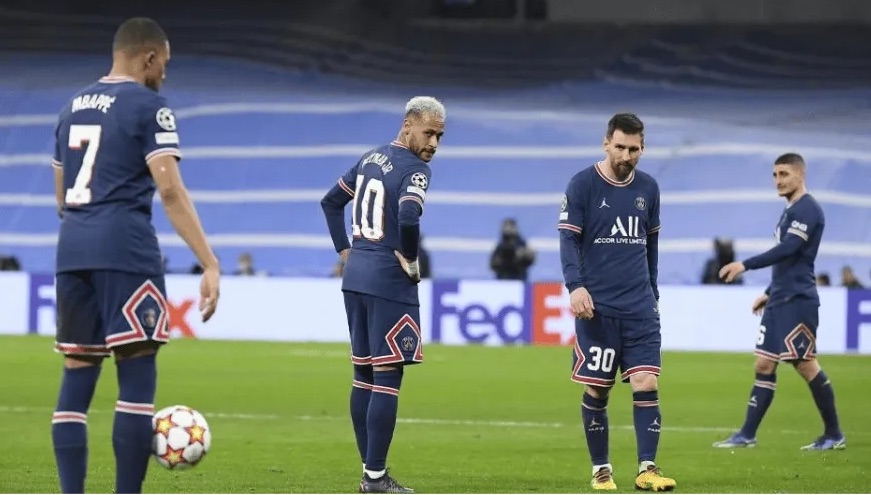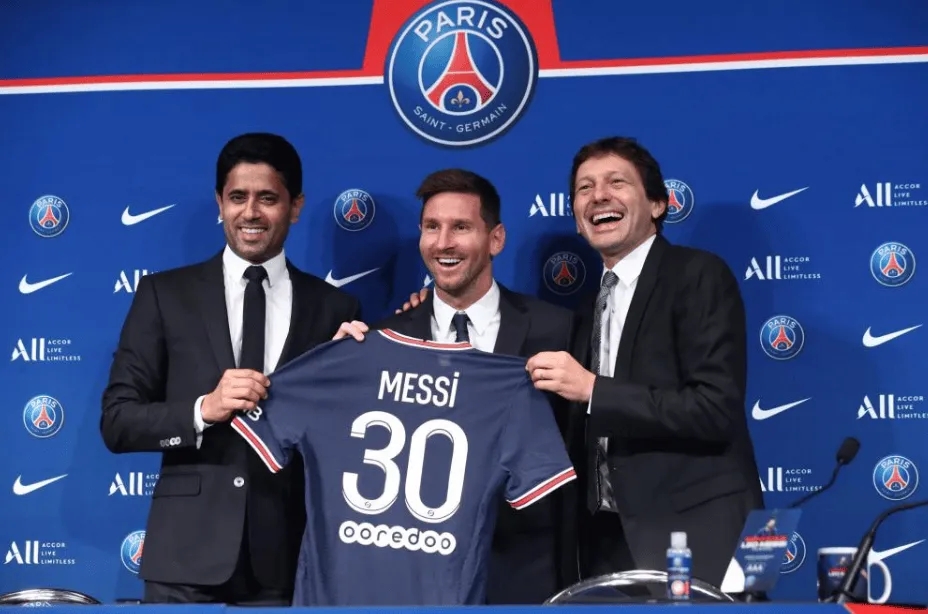
Messi's PSG Legacy: Traces Left, European Dreams Unfulfilled
When Lionel Messi arrived at the stadium in the summer of 2021, he surprised his new teammates. In the locker room, he settled in like any other player, preparing in silence—no grandstanding, no overt sense of self-importance.
His modesty stood in stark contrast to the excitement of younger squad members, who were awestruck to train alongside a legend. Despite his fame and trophy-laden career, Messi knew he was the new arrival.
He believed everything had to be earned on the pitch, a mindset that accelerated his integration—even though he already knew familiar faces. There was former Barcelona teammate Neymar, compatriots Ángel Di María and Leandro Paredes, with whom he often hung out off the training ground. He also grew close to Marco Verratti, having met him during holidays in Ibiza.
Leaving Catalonia abruptly, disrupted pre-season preparations—he had to process it all. Adapting to a new country, language, teammates, and a league prioritizing athleticism over technical finesse posed unfamiliar challenges.
He recognized this first, striving to serve the collective as manager Mauricio Pochettino grappled with balancing the team. But crucially, Messi’s influence at Champions League level never matched expectations.
Three Trophies and Stellar Stats
The second season proved more convincing. With a normal pre-season at last, he returned motivated, eyeing the World Cup. Under new manager Christophe Galtier, the first months were brilliant.
Until the World Cup kicked off in mid-November, the trio of Messi, Kylian Mbappé, and Neymar was unstoppable (0 losses, 63 goals in 22 games). In Qatar, he rode a wave of joy, culminating in the final against France.
After a brief rest and celebration, he no longer made the same impact, and Neymar’s right ankle injury in February derailed the first-half momentum.
Messi still shone in Ligue 1, claiming the assist leader title (16 assists). In two seasons at PSG, his stats were striking: 32 goals and 35 assists in 75 matches across all competitions.
He won three trophies and delivered extraordinary marketing success, with jersey sales and sponsorships setting records.
Yet two humiliating defeats in the Champions League round of 16 shattered the promise. For the Argentine, it was a personal failure—signing primarily to win a fifth Champions League, PSG remained a supporting role in Europe despite its star-studded attack.
The Bitter Departure
During the 2022 World Cup in Qatar, PSG staff and Messi’s father spent time there. A meeting discussed the future of Messi’s sons, with his contract expiring in June 2023.
Renewal was floated, though financial terms weren’t yet discussed. Weeks later, the Argentine captain lifted the trophy he’d coveted, presented by the Emir of Qatar.
When Messi returned to Paris in January, the atmosphere shifted. His camp sought to leverage the global triumph, but PSG felt they’d already offered a generous salary. Negotiations stalled, then dwindled, ending without formal closure.
PSG refused better terms to send a message. Two straight Champions League exits prompted management to realign the project around Mbappé.
Meanwhile, Saudi Arabia beckoned, and Inter Miami mobilized MLS’s deep pockets (Apple, Adidas). Messi sensed his future lay beyond France.
He wasn’t content, nor were his wife and children. He couldn’t understand the boos at Parc des Princes after European exits, but recognized the need to give Mbappé spotlight. “He wasn’t happy in Paris,” a contemporary sighed.
Caught in the Neymar-Mbappé rivalry, he felt the club protected the Frenchman—who hadn’t even won a World Cup at that point.
On May 1, 2023, the day after losing to Lorient, Messi skipped training to meet a private sponsor in Saudi Arabia without club approval.
Shockingly, president Nasser Al-Khelaifi and sporting advisor Luis Campos decided on harsh punishment: a two-week suspension and salary deduction.
The hierarchy aimed to “make an example” and signal PSG had become a club demanding respect.
Two days later, Messi released an apology video, “asking forgiveness from teammates and the club”—like a child caught in the act.
According to a close friend, Messi’s camp initiated the video, “dressing him up like a doll” for the event. The friend, along with others, was stunned by the gesture.
But Messi never forgot the “humiliation.” More than daily upsets, fan hostility, or on-field disappointments, this marked the final break.
From then on, every public statement became a chance to retaliate, striking back at PSG—a stance that surprised those close to him.
“This isn’t like Messi,” one whispered. “Such a shame. Honestly, he never would’ve come to Paris if Barça hadn’t had problems.
The club seemed overwhelmed, and the managers [Pochettino and Galtier] didn’t know how to handle the team. With Neymar, Messi, and Mbappé, it should’ve been spectacular. A missed opportunity.
Hopefully, their relationship heals one day. Because 30 years from now, we’ll still remember Messi wore PSG’s colors.”




